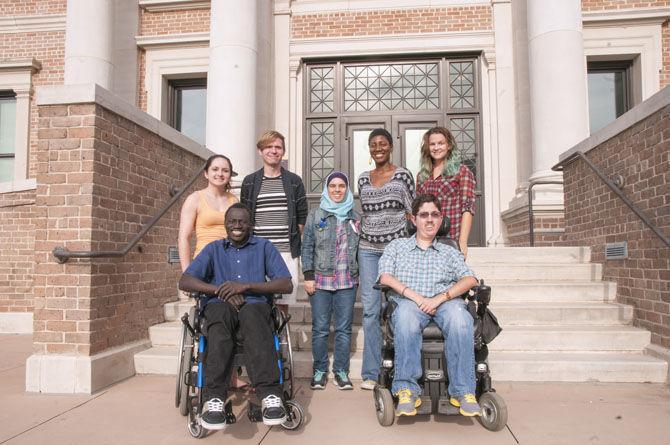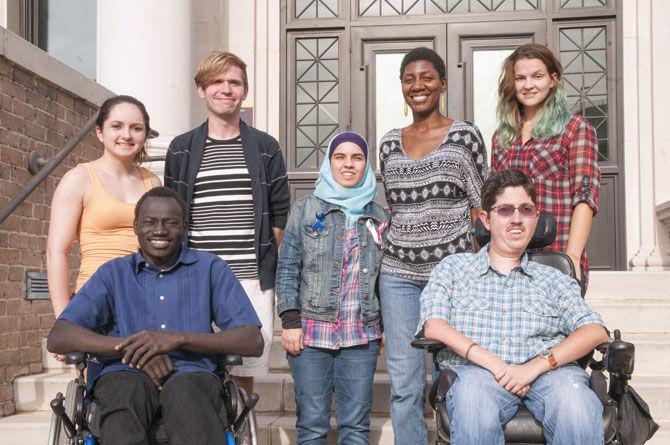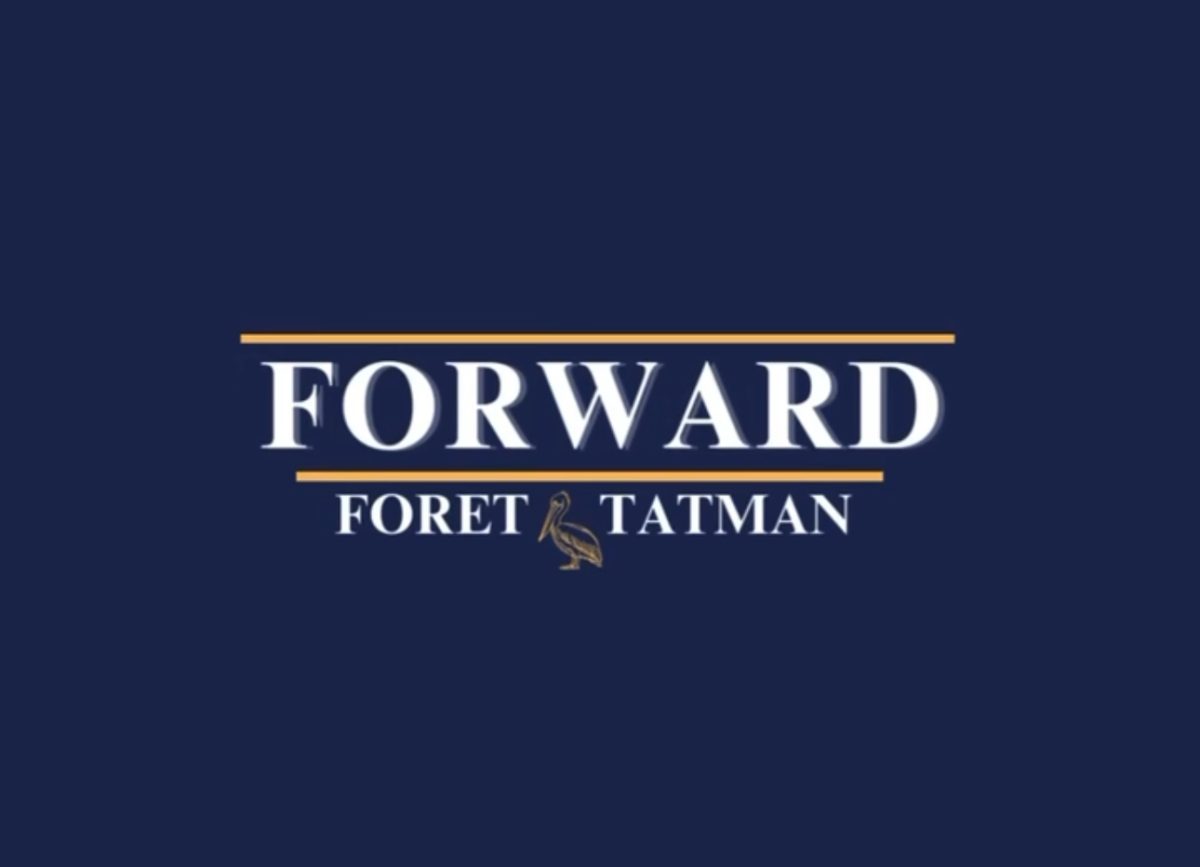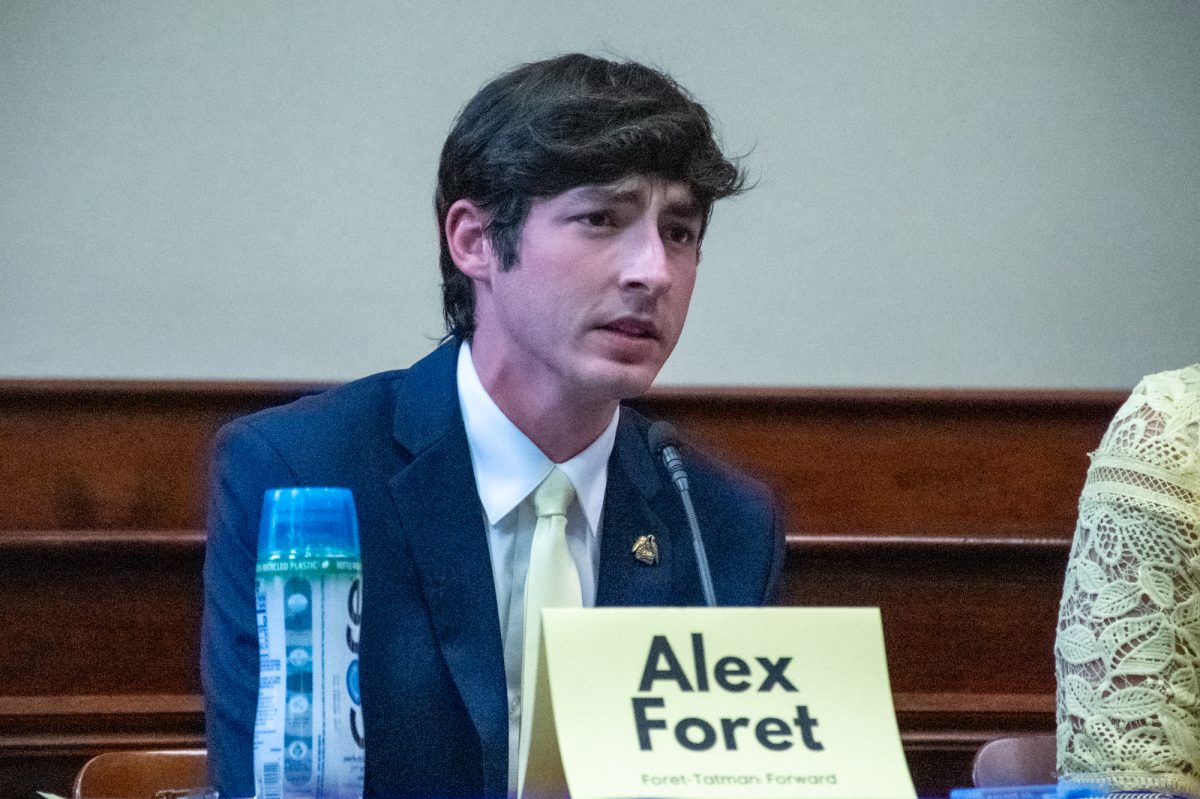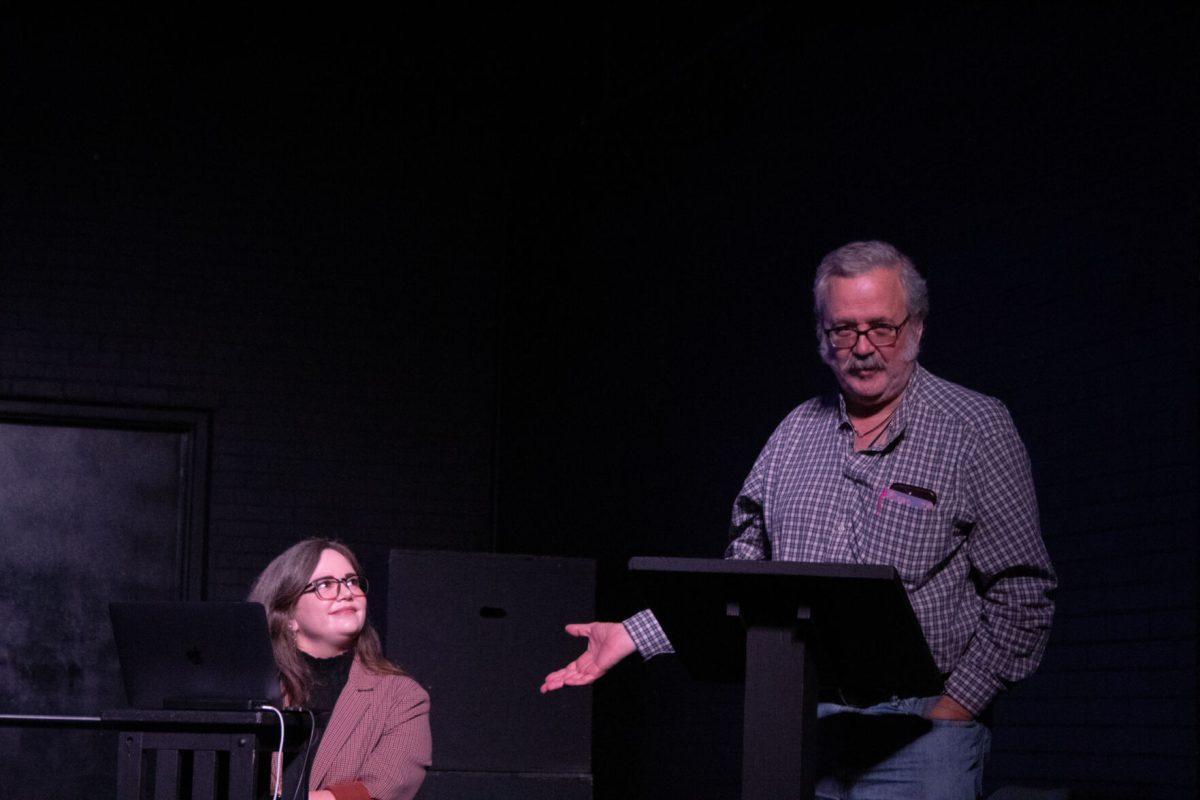When interdisciplinary studies senior Sean Thompson treks to class every day, he takes special care to look for cracks in the sidewalk that might tear up the wheels on his chair.
Though Thompson saw improvements this semester – “The sidewalks are wider and smoother” – he wants to make sure he leaves his alma mater in better shape than he found it, which is why he and economics senior Michael Panther Mayen started the Disability Student Organization.
“We were surprised there was nothing like it on campus, so we decided to do it ourselves,” Thompson said. “We wouldn’t want to leave without having it started.”
Though DSO is less than two weeks old, its members already aim to amplify the individual concerns of disabled students while also providing a place for them to socialize and vent.
“Our biggest goal for this semester is to bring awareness to students, professors and faculty,” Mayen said. “We want to get students with disabilities together and say, ‘What are your concerns?’”
Thompson, like many disabled students, sees campus in terms of accessibility.
He leaves early on days when he’ll have to enter buildings that have two sets of doors and memorized which buildings don’t have elevators and which ones are likely out of order.
In Himes Hall, for example, there is no elevator, and students in wheelchairs must make appointments to visit professors in that building instead of taking advantage of their office hours.
“It’s inconvenient for both of us,” Mayen said. “I can’t just zoom right in there. It doesn’t give us equal opportunity for everyone.”
Members hope to raise awareness for these logistical issues and advocate for their improvement, while also promoting social understanding and compassion.
Thompson recalled an incident during his freshman year when a professor did not want to let him make up a midterm. He missed the exam after his chair broke and could not be repaired for two weeks.
“He was just very belittling and … rude to me and to the disability department,” Thompson said. “We believe a lot of professors don’t understand.”
DSO President Amanda Swenson, an English PhD student, said she wants to educate the campus community on what it means to be a good ally for a disabled student.
Swenson, who is epileptic and has a heart condition, said it is important for others to look past her disability and see her as a human being.
“We are all marked by our disability. If you’re in school you’re ‘courageous,’ or people like to say things like, ‘despite her disability,’” Swenson said. “I do so many things, but people can’t see beyond our identifier.”
DSO plans to act as a liaison between the administration and the students while working closely with Disability Services.
Though many members praised the help they got from the department, they said they hope to expand Disability Services’ role beyond what people see — rescheduling tests and providing notes.
DSO co-publicity chair Sarah Webb, an English PhD student, began instructing her first class this semester and said she became aware of several programs she did not know about before.
The Disability Services website provides information for faculty and staff on strategies and tips, sample syllabus statements and “Things to Say and Not to Say.”
“They do seem helpful,” Webb said. “If an instructor wants to learn how to interact with their students, there are many resources.”
Even though he graduates this semester, Mayen said he wants to make sure nothing deters future students, disabled or not, from considering LSU for higher education.
He said as the Louisiana flagship school, LSU has a duty to go above and beyond.
“We don’t want to operate at the minimum level,” Mayen said. “We want to come together socially and support each other.”
New Disability Student Organization aims to advocate for, offer community to disabled LSU students
October 13, 2015
Members of the newly formed LSU Disability Club on Thursday, Oct. 8, 2015, outside of the Journalism Building.
More to Discover




